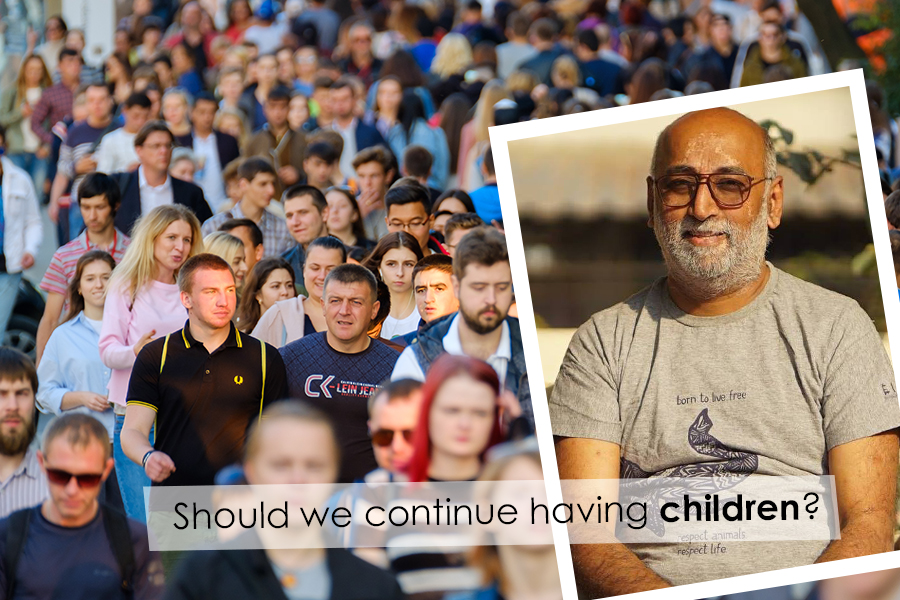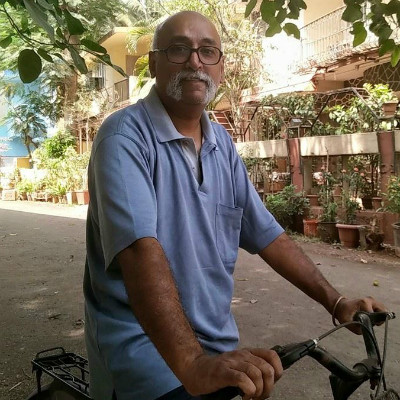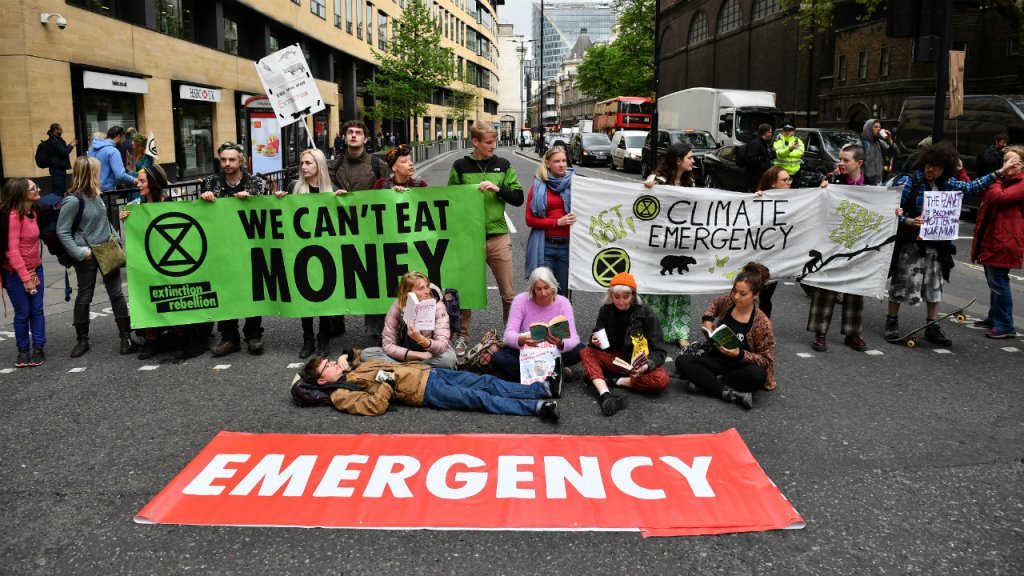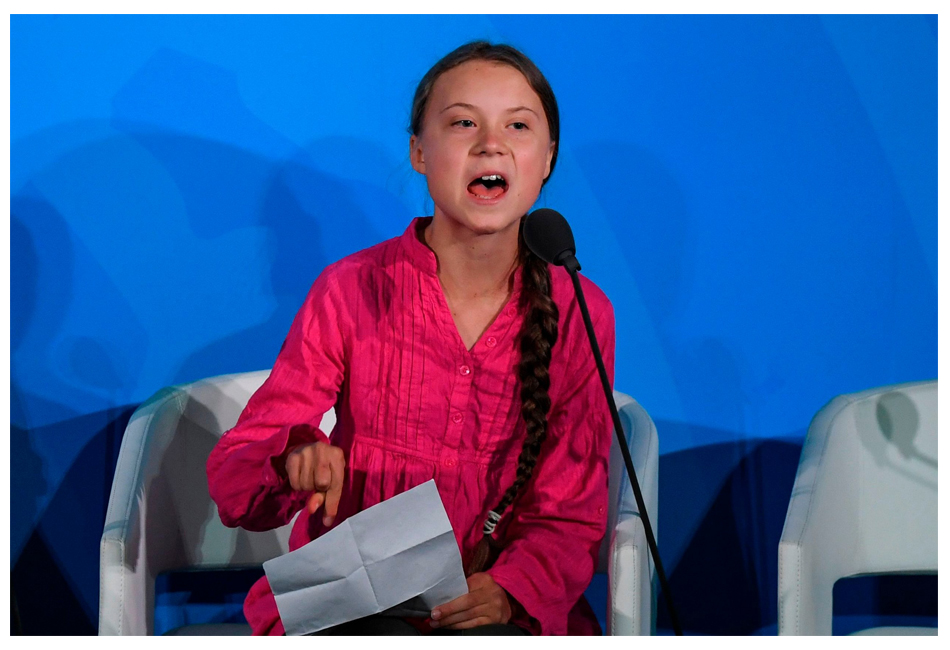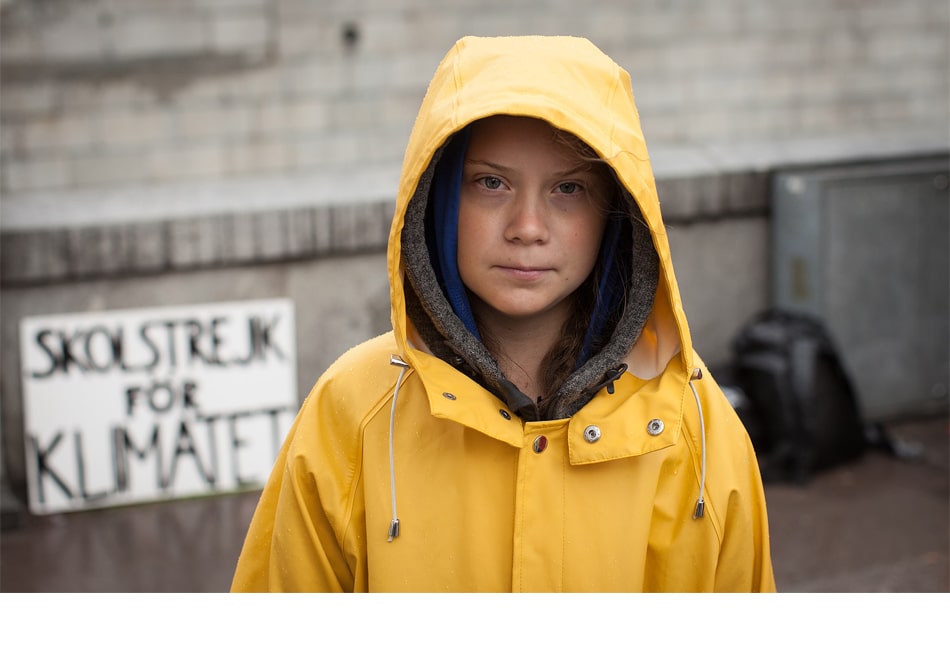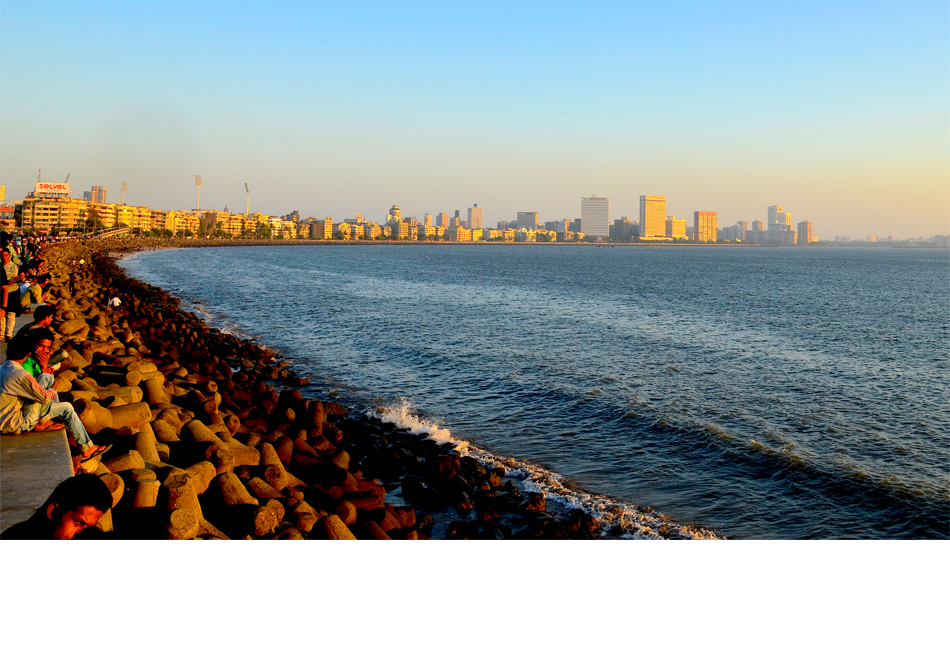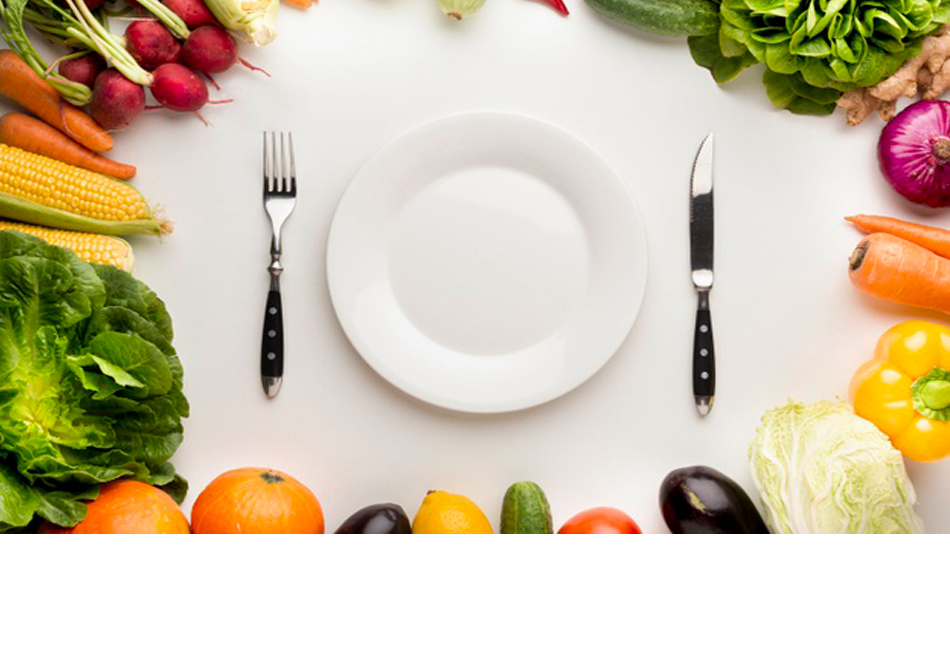Download Free Vegan Starter Kit -
Greta Thunberg: How Dare You Steal My Childhood
It’s not often that you come across a teenager who hangs out with world leaders like Barack Obama, members of the European Parliament and Arnold Schwarzenegger. But then Greta Thunberg is not your average 16-year-old.
She started out as a lone crusader, protesting the horrors of climate change by skipping school and parking herself outside the Swedish parliament. Greta’s school strike set off a chain reaction, launching Fridays For Future – a global movement of weekly school walkouts for climate activism. And throngs of students are joining in, from Delhi to Tokyo and beyond.
Today, she’s inspired hundreds of thousands of students around the world to do the same, and millions listened as she addressed the world at the UN Climate Action Summit last week.
In her own words, she is merely speaking truth to power – and her truth affects each and every one of us inhabiting this planet. Our home, Earth, is in grave danger and she will stop at nothing to let you know.
“People are dying. Entire ecosystems are collapsing. We are in the beginning of a mass extinction. And all you can talk about is money, and fairy tales of eternal economic growth. How dare you?”
Greta Thunberg
Thunberg, in her speech, when on to highlight that we have less than 10 years to solve the problem. According to a report from the IPCC, as of Januray 2018 the planet had only 420 gigatons of CO2 left to emit, and today that figure is down to less than 350 gigatons. That doesn't give us much time to contain emissions.
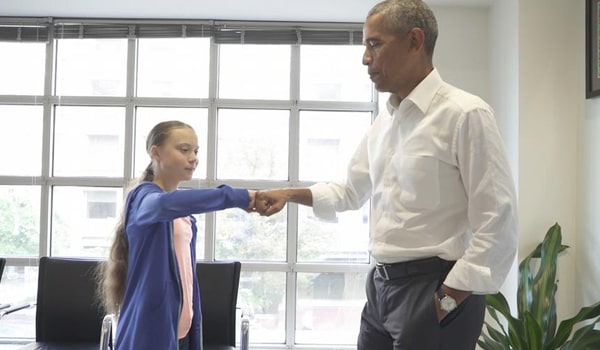
How Climate Change Is Going To Affect Your Life
Thunberg makes adults uncomfortable because she states the reality: that we’re facing a crisis, and we need to act NOW. We humans take much for granted – including the planet. And she’s right: at the rate we are emitting CO2 and greenhouse gases, there won’t be much of a planet left for future generations.
Climate change affects us in more ways than we know. Rising global temperatures mean the ice caps are melting, and once they do, sea levels across the world will rise, putting coastal populations across the world at risk.
Changing weather patterns are another matter of concern. According to the EPA, scientific studies indicate that extreme weather events like large storms and heat waves are likely to increase in frequency and become more intense as a result of human-induced climate change.
Climate change is also going to have an impact on food security. Global warming is putting serious pressure on fertile soil, which in turn is putting our food security at risk. Soil degradation has a direct impact on the amount of carbon the Earth is able to contain. The IPCC, in its latest report, highlights that keeping global warming well below the 2ºC can be achieved only by reducing greenhouse gas emissions from all sectors, including land and food. That includes the amount of land cleared and being used to grow crops fed to cattle and other animals that are slaughtered for human consumption.
Climate change may even change our access to the internet, believe it or not. The fibre optic cables and data transfer stations that hold up our access to the internet are a complex patchwork…that lie underwater, in the sea. And once sea levels rise, our access to the net slows down, because accessing those cables gets that much harder.
What can we do? Well for starters, Thunberg says we can inform ourselves and understand the problem at hand – that should be enough to get you to take the right steps that contribute to the bigger picture. In an interview to CBS This Morning, Thunberg stated “I think the most important thing to do right now is to try to understand the crisis, is to grasp the problem. Because I think once you fully understand the climate and ecological emergencies, then you know what you can do as well…”
Change What’s On Your Plate
The least (and yet very impactful thing) you can do is to change what’s on your plate. Animal agriculture and factory farming are one of biggest culprits when it comes to greenhouse gas emissions, and by choosing to skip meat, eggs and dairy, you are doing the planet a BIG favour.
Thunberg is vegan, and has even forced her parents to adopt a vegan diet. The benefits of a vegan diet are manifold: it saves animals, saves resources, it’s better for your health and the environment.
Quoting from the film Cowspiracy, here’s a look at the numbers associated with animal farming:
- It is responsible for 18% of all greenhouse gas emissions, which is more than the combined exhaust from all transportation.
- Livestock and their byproducts account for 32,000 million tonnes of CO2 per year.
- Cows produce 150 billion gallons of methane per day
- Methane is 25-100x more destructive than CO2 on a 20-year time frame
Animal agriculture is also one of the leading causes of deforestation. Satellite data indicates that every minute, we lose a football pitch size of land EVERY MINUTE to make room for grazing land for cattle, or to grow soy and other crops to be fed to cattle. That’s the cost of the beef we eat and the milk we drink.
Livestock is also responsible for 65% of all human-related nitrous oxide emissions. By switching to a plant-based diet, individuals are automatically helping cut down on those deadly gases.
So if you care enough - which you should – listen to what this feisty, fiery teenager has to say – and make the switch to a lifestyle that can help contain the crisis.
Like this?
Read: Leonardo DiCaprio Says Eliminate Beef to Save Amazon as Devastating Fires Spread
Read more: Seafood May Be Gone By 2048, Says Nat Geo
AUTHOR

trending
Be a Vegan First Informer
Send us buzzworthy news and updates
Explore
Contact Us
About Us
Stay Connected
Copyright ⓒ 2017-2023. VEGAN PASSION PRIVATE LIMITED. All Rights reserved.
For more information, please write to hello@veganfirst.com
Registered Office Address: 55, 2nd floor, lane 2, Westend Marg, Saidullajab, Near Saket Metro Station, New Delhi, Gadaipur, New Delhi South West Delhi, DL

2.png)

.png)
.png)
2.png)
2.png)
2.png)


1.png)

